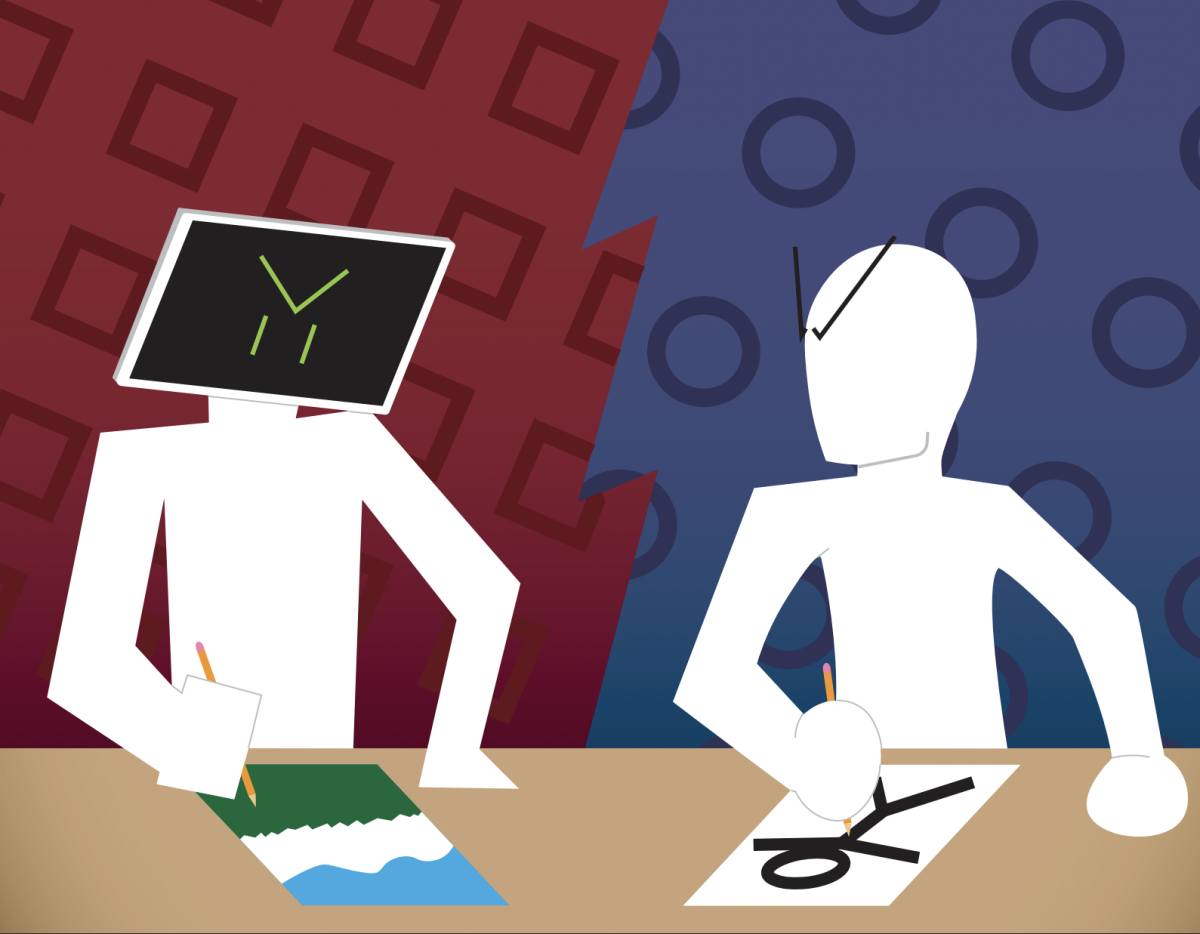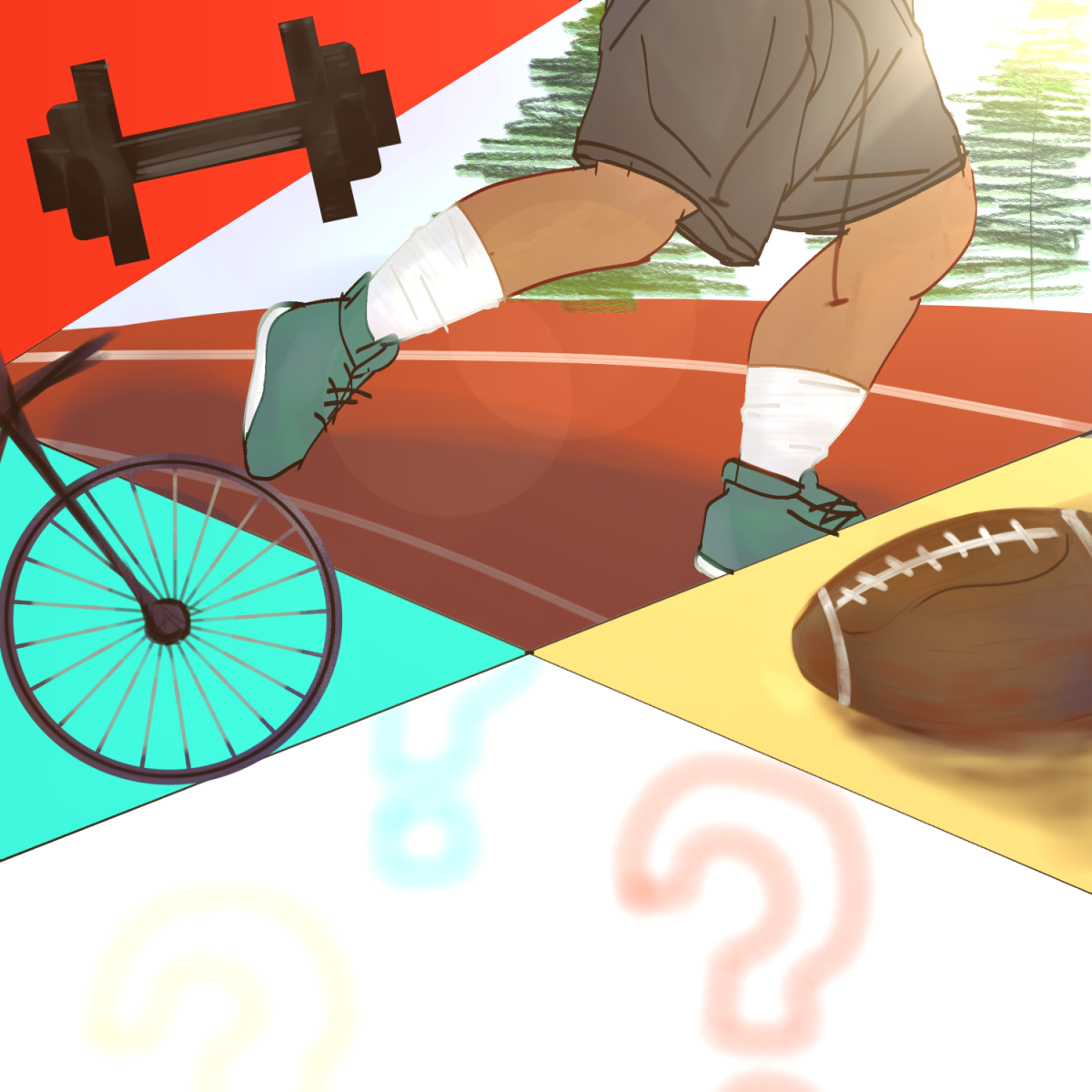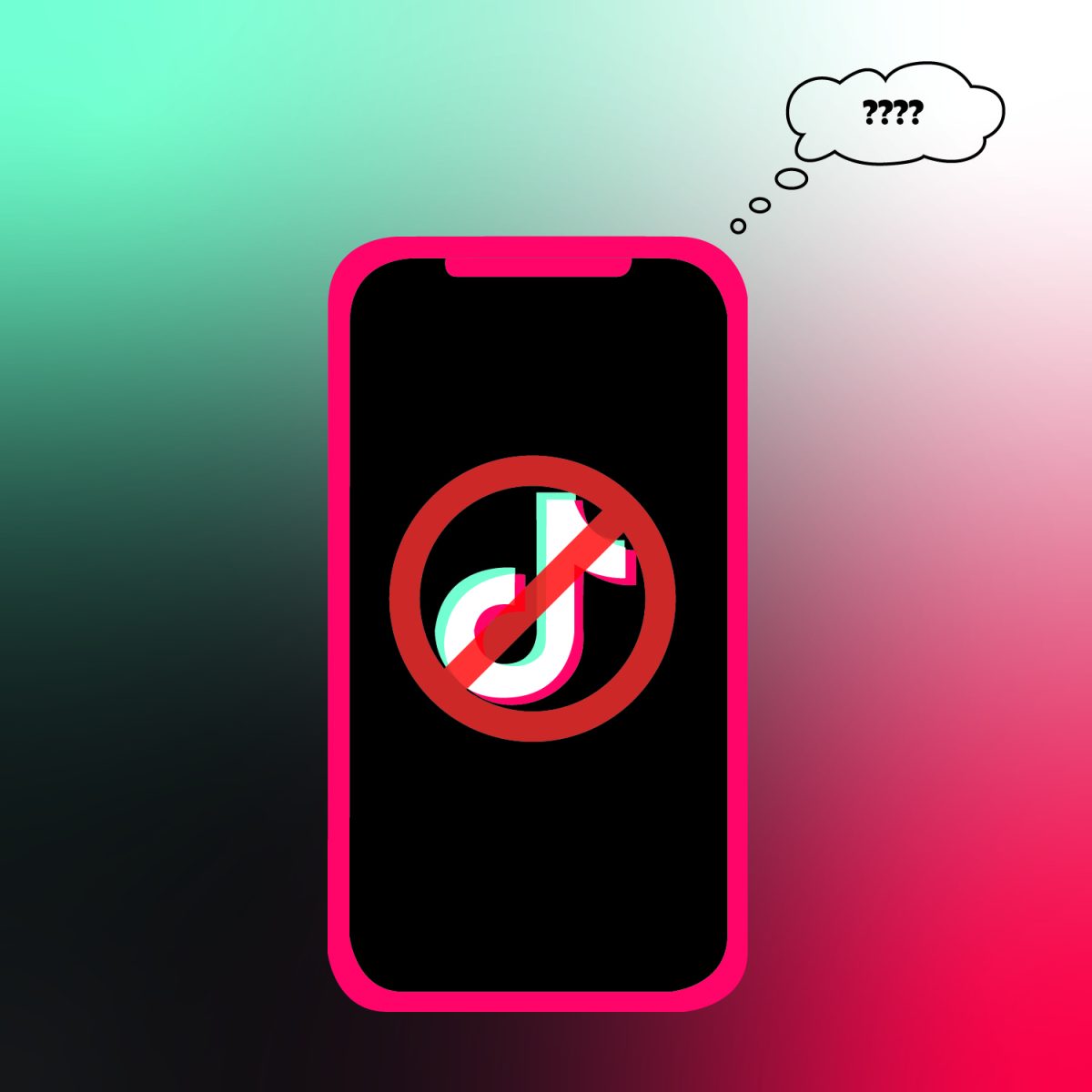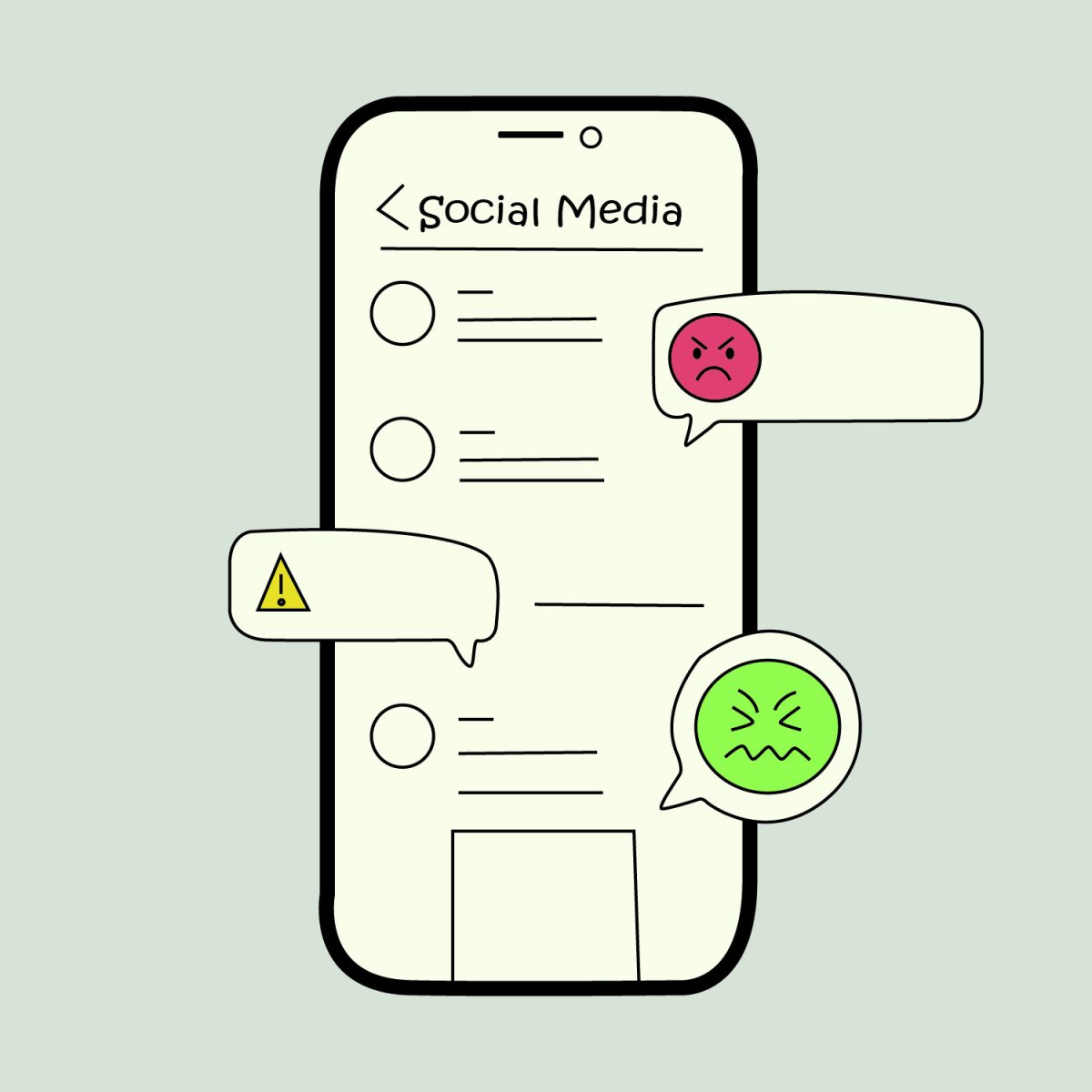Teenage confidence has always been a tricky subject. However, during this era, our confidence is becoming even more vulnerable than it normally has been during our teenage years. Have you ever wondered why this is happening? It originates back to the question: What is confidence? According to Nemours TeensHealth, “Confidence means feeling sure of yourself and your abilities – not in an arrogant way, but in a realistic, secure way.” Confidence relates to how one feels about themselves, and it is really important whether someone views themselves in a negative or positive light. Junior Kaila McKinnon says, “I just view myself as myself.”
Confidence is crucial to how one views themself and faces the challenges life has to offer. Having self-confidence opens a world to all sorts of advantages and is crucial to how one interacts with the world. Sophomore Dylan Kim says, “Any action I do requires self-confidence. Without self-confidence, you can’t move on as a person.” If you do not have faith in yourself, then you cannot discover yourself as a person. The article by Nemours TeensHealth says, “Confidence helps us feel ready for life’s experiences. When we’re confident, we’re more likely to move forward with people and opportunities – not back away from them.” If we do not have confidence in ourselves, then we will not be able to go anywhere in life and step out of our comfort zones.
Two of the main questions that circle self-confidence is where it comes from and how it changes. The TeensHealth article continues, saying, “Confidence levels go up and down for all of us, even the most confident seeming people.” It is OK if your confidence levels always change, it is normal for everyone. However, for some people, high self-confidence can be more difficult to come by. There are many factors that lead to one’s self-confidence level, but it honestly depends on the person and their experiences. When asked what general factors cause students to have low self-esteem, IHS mental health counselor Darcy Wyatt says, “The factors vary per person. Low self-confidence can start very young, be related to trauma, abuse and neglect, and with demeaning comments. This causes people to not view themselves as worthy. It all honestly just depends on who we surround ourselves with. Of course, the opposite factors bring out the opposite results.” The most important factor in how self-confidence changes can sometimes be overlooked, but that factor is society. Society is the single most harmful factor in a teenager’s self-confidence. Some of you might not understand how society is harmful to one’s self-esteem, but to others, it makes perfect sense. Freshman Madelyn Knox says, “The norms we have in society can be a huge problem.” To add on to that, Kim says, “Societal norms are important. If you don’t fit in, you’re an outsider. There aren’t strict rules to follow, but we just follow them.” Society tries to shape and mold everyone into being the people that they consider “normal,” but all it does is tear apart one’s self-confidence by making them feel that they’re not good or “normal” enough. If one is not considered normal, then they are an outsider, and no one wants to be left out when all they are doing is being themselves.
Self-confidence is a really important aspect of one’s mental health. If you have low self-confidence, then it becomes a mental issue. Can you think of some other mental health insecurities or illnesses that one might have that relate to self-confidence? If you thought of depression, anxiety, or suicide ideation, then you are correct. If a teenager ever has low self-confidence, then they are bound to also experience depression, anxiety, feelings of loneliness, and suicide intent. According to DoSomething, “About 20 percent of teens will experience depression before they reach adulthood.” Even though having low self-esteem does not necessarily mean that one will develop feelings of anxiety or depression, the relationship is still there. According to a study titled “Self-esteem deficits and suicidal tendencies among adolescents” from the National Library of Medicine, “Low self-esteem was closely related to feelings of depression, hopelessness, and suicidal tendencies.” We now know the relationship between low self-confidence and certain mental illnesses, but the question remains, what creates this relationship? Wyatt says that the most common factor is negative core beliefs like, “I’m worthless” and “I don’t matter.” In addition, Kim said he had an acquaintance who committed suicide because of academic and parental stress. The most important thing to be aware of when it comes to suicide and self-confidence is how you talk to yourself. If you are worried that someone might be considering suicide, use depression and suicide screeners (questionaries that ask about one’s health and personal feelings to determine what’s going on with them currently), or just directly ask them about it. Asking someone about how they feel is one of the most effective methods since most teenagers are honest about how they feel.
Self-confidence in teenagers has been a touchy topic for as long as humanity can remember. However, in this age, there is one factor that has taken the world by storm in this modern era, is obsessed by people everywhere, and can be extremely harmful to one’s self-esteem: social media. Social media is adored by everyone everywhere, and because of all of the love it gets and all of the benefits it offers, all of the negative side effects it causes go unnoticed. According to Social Media Victims Law Center, “While social media can have many positive effects, researchers are aware are aware its potential negative effects can have long-term impacts on teens’ mental health and overall well-being – especially on their self-esteem.” Social media can seem like such a good thing to teens, but in this picky society that determines one’s worth just based on how “normal” and “cool” they are, teenagers are bound to feel out of place and be obsessed with how much attention they get. According to the article by Social Media Victims Law Center, “Each time they post a picture or status update, they can worry about the number of likes, shares, and comments the post will generate. This obsession is yet another opportunity for comparison and potential embarrassment about how others view them, especially if another person’s got more attention and positive feedback.” This trend with the obsession to get more likes and attention is what is causing a lot of people to lose the confidence they have and to try and become someone that they are not. This also relates to how people can show off their “wonderful” life to the public on social media platforms by lying and presenting something fake. This false presentation of perfectly wonderful lives can lead to a lot of negative self-comparison. Social Media Victims Law Center says that many influencers manipulate their social media profiles to paint a perfect picture of their lives with carefully selected filtered/altered photos, videos, and posts. This false image of one’s life causes teens and children to feel that their own lives might be missing the flair that they see in other’s lives, this makes adolescents feel more negative towards themselves. In fact, according to the article on DoSomething, “75 percent of girls with low self-esteem reported engaging in negative activities like cutting, bullying, smoking, drinking, or disordered eating. This compares to 25 percent of girls with high self-esteem.” and “More than 40 percent of boys in middle school and high school regularly exercise with the goal of increasing muscle mass.” It is hard to feel confident in yourself when you see everyone else living better lives than you. This pressures you into doing what everyone else is doing so you can fit in. If you are worried about someone’s self-confidence, look for certain signs to determine if they are suffering because of social media. In the article by Social Media Victims Law Center, it says, “There are warning signs of low self-esteem: Self-depreciation, even when joking, ignoring or discounting achievements, blaming oneself when things go wrong, failing to accept compliments, feelings of anxiety, depression, shame, anger, or sadness, and crippling fear of failure. For teens, in particular, there are additional signs: gradually declining school grades, mood swings, refusal to help with household chores or challenges, and giving up on a task at the first sign of frustration” Even though social media can cause many mental health problems, it can also bring many advantages. It is okay to use social media as long as you remember the negative effects of over usage of technology and try to limit yourself from social media to prevent any future mental issues from occurring.
The most difficult thing to do when someone is struggling with low self-confidence is building back their confidence. There are many different websites online that offer tips to build back confidence, but it does not always work or suit someone’s situation. Wyatt helps students by aiding them in noticing how they think and feel about themselves, having them practice treating themselves as they would with a good friend (this takes practice), and encouraging self-care, like enough sleep, nutritional food, and social interaction. Since physical and mental health depend on each other, it is really important to take care of all three aspects of our health triangle: physical, social, and mental health. When it comes to building back self-confidence, it is important to take small steps one at a time instead of big leaps. Psychology Today says, “Consider three possible contributors to self-confidence. Confidence can be built on FAITH: ‘I believe I can.’ It can be created by EFFORT: ‘I will keep trying.’ And it can arise from OUTCOME: ‘I will use what results to affirm or adjust my approach.’ Take these components one at a time.” If we do not put in any effort and determination into building our confidence, then we will never be able to build it back up. If we want adolescents to keep their confidence, then society will need to change for the better. When asked how society or individuals could help those that struggle with self-confidence, Wyatt says, “As a society there’s a lot of pressure to being better, to be different.” The media should let go of the pressure on how to be perfect. They should focus on letting us be ourselves and see the beauty in it. Listen to people to see where they are coming from. Accept people without judgement. Focus on becoming the best person we want to be.” To add on, McKinnon says, “Encourage self-discovery. Allow people to make utter messes that help them find who they want to be.” Not only that but Knox says, “Normalize reaching out for help. Make reaching out for help seem like a good thing.” Finally, Kim says, “Just being there for someone is a really important thing. Taking the first step requires confidence. How society will react is a big issue. A lot of people have kind hearts but not a lot of courage.” If we want to move on in society and help those that struggle with self-confidence, then we’ll need to be able to encourage reaching out for help and prevent creating labels and norms.
If you ever need to talk to someone, talk to a parent, a friend, trusted adult, or a counselor. Make sure to be honest about how you’re feeling.
Schedule an appointment with Darcy Wyatt, the mental health counselor, or email her at [email protected]!
Schedule an appointment with your assigned counselor at the IHS official website!














